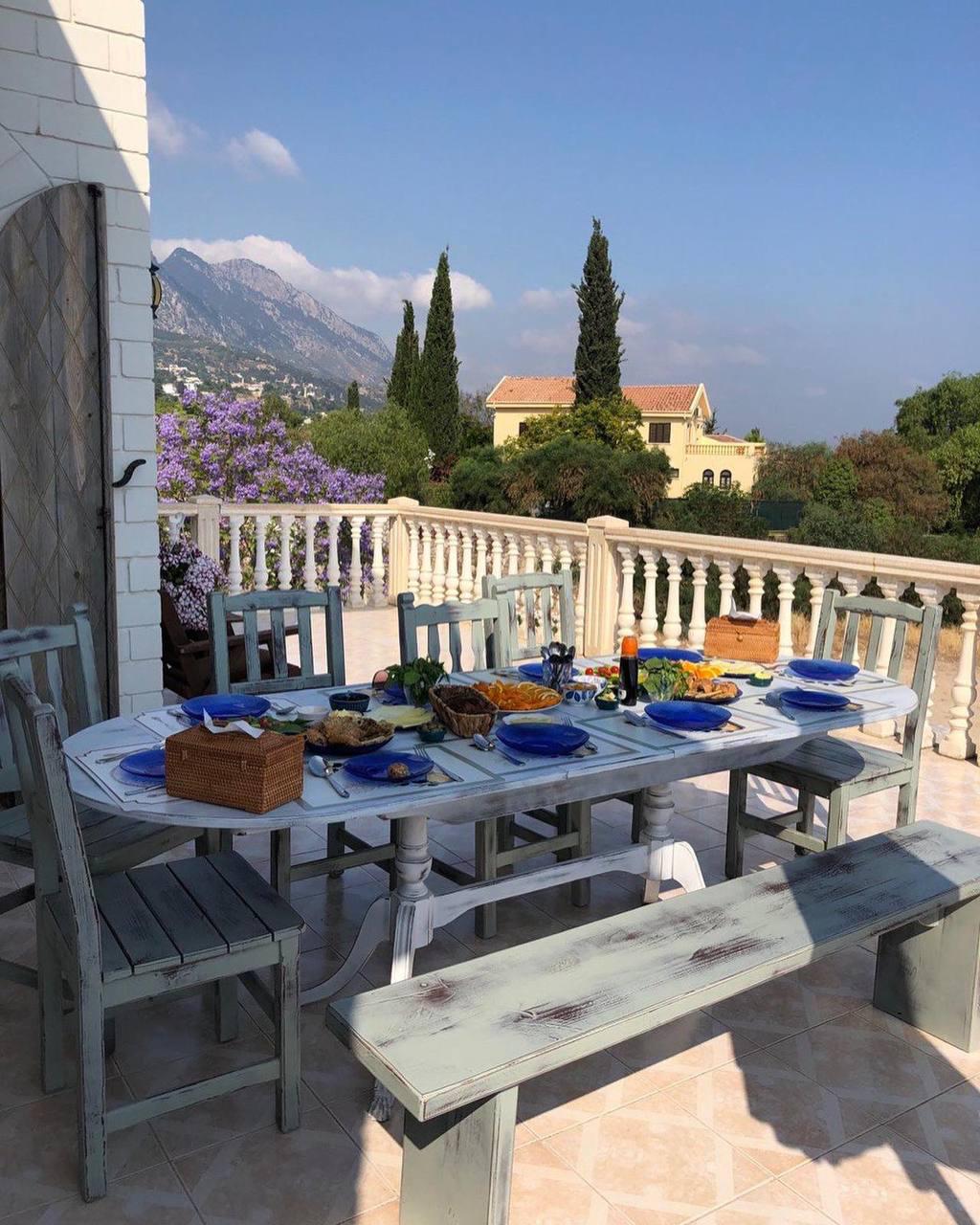
Living in Bali: pros and cons


Real Estate Specialist
Bali is one of Indonesia's most popular islands, attracting tourists and expats from all over the world with its unique culture, picturesque scenery and rich variety of activities. The purpose of this article is to evaluate the pros and cons of living and vacationing in Bali to help you make an informed decision about moving or traveling to this exotic island.
How to get there
There are several ways to get to Bali. There are no direct flights from Russia, so you will have to make a connection in one of the major Asian hubs, such as Singapore, Kuala Lumpur or Jakarta. Airlines offer convenient connecting flights with short waiting times. Visa requirements for Russians are relatively simple: you can get a visa on arrival for 30 days with the possibility of extension. To do this, you must have a passport valid for at least 6 months from the date of entry, a return ticket and confirmation of accommodation booking.

- Route planning: It is recommended to plan your route and book tickets in advance to avoid unpleasant surprises. Compare prices on different websites and choose the most convenient option.
- Airport transfer: Upon arrival at Ngurah Rai International Airport (DPS) in Denpasar, you can take cabs, hotel transfers or rent a car. Cab fares are fixed, but it is always a good idea to check the price before traveling.
- Vaccinations and health: Before traveling to Bali, it is recommended to get vaccinated against hepatitis A and B and typhoid fever. Do not forget to bring the necessary medicines and first aid kit.
- Border control: At border control, you may be asked to show your return ticket and proof of financial solvency (e.g. a bank statement). Be prepared for these requirements.
- Seasonality and weather: Take seasonality into account when planning your trip. The best time to visit Bali is from April to October, when the weather is drier and more comfortable for traveling.
By following these tips, you can make your trip to Bali as comfortable and carefree as possible.
Housing options
On You can find accommodation in Bali for all tastes and budgets. From luxury villas with swimming pools to budget guesthouses and hostels. Rental prices are relatively low, especially if you are planning an extended stay.
Luxury villas: The cost of renting a luxury villa with swimming pool and all amenities can vary from $1,500 to $5,000 per month. The price depends on the location, size and comfort level. Villas in popular areas such as Seminyak or Changgu will cost more.
Apartments and apartments: Renting an apartment or apartment will cost an average of $400 to $1,200 per month. In larger cities such as Denpasar and Ubud, prices may be higher, but the level of comfort and infrastructure will be corresponding.
Guest houses and hostels: For those looking for budget accommodation, guesthouses and hostels offer rooms at prices ranging from $10 to $30 per night. Long-term rentals in such places can be even cheaper, with the possibility of negotiating a discount.
Purchase of real estate: If you plan to stay in Bali for a long time, buying real estate can be a lucrative option. Cost villas or houses in Bali starts at $100,000 and can go up to several million dollars depending on the location and level of luxury. It is important to consider legal aspects and consult with professionals before buying.
Long-term leaseFor those who plan to stay in Bali for several months or years, long term rentals can be a great option. Prices for long term rentals range from $300 to $2,000 per month depending on the type of accommodation and its location.
There are also many real estate agencies and online platforms in Bali where you can find accommodation options to suit your requirements and budget. Be careful when choosing and always check reviews and testimonials.
Work in Bali
Bali has become a real paradise for freelancers and entrepreneurs. Here you can find many coworking centers and cafes with good internet, which creates a great environment for remote work. For example, co-working spaces like Hubud and Outpost offer comfortable workspaces with excellent infrastructure. The cost of a monthly subscription to a coworking center varies from $100 to $300 depending on the selected package.
Business start-up opportunities are also abundant, especially in the tourism, restaurant and IT sectors. The average cost of registering a business in Bali is around $1,000-$2,000, including legal services and all necessary paperwork.
However, it is important to remember to obtain official documents such as work visas and activity permits. To work in Bali, you will need a social visa, which costs around $50 and is issued for 60 days with the possibility of extension. For longer stays and business, it is better to apply for a KITAS, a temporary work visa, which can cost up to $1,200-$1,500 per year.
Medicine
The quality of medical services in Bali varies from clinic to clinic. In major cities such as Denpasar and Ubud, you can find modern medical centers with a high level of service. For example, a visit to a general practitioner can cost around $30-$50, depending on the clinic and the complexity of the visit. A consultation with a specialist such as a dermatologist or cardiologist may cost $50-$100. The cost of medical services is relatively low compared to Western countries, but having health insurance is essential to avoid unexpected costs.
For those who are planning an extended stay on the island, it is recommended to purchase international medical insurance. The insurance policy can cover both outpatient and inpatient treatment, as well as emergency medical evacuation, which is especially important in case of serious illness or injury. The cost of annual insurance can range from $500 to $2000, depending on the coverage and the age of the insured.
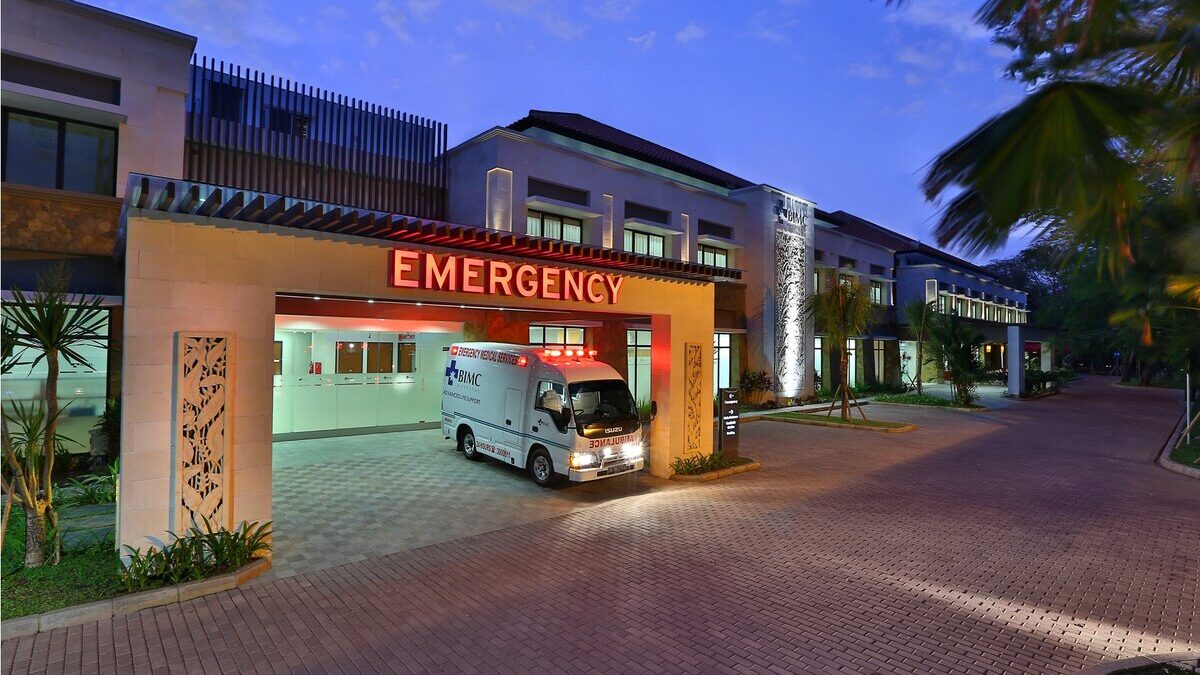
In addition to traditional medical services, Bali also has a strong alternative medicine scene. Numerous spas and yoga retreats offer Ayurveda, massages and other wellness practices that can be a great addition to your health and well-being.
It is also worth noting that international pharmacies are available in Bali, where you can purchase both local and imported medicines. However, if you have specific medical needs or take certain medications on a regular basis, it is recommended that you bring them with you or consult your doctor for possible analogs.
In general, the medical infrastructure in Bali is sufficiently developed to provide a comfortable stay and a quick solution to possible health problems.
What you can't do
In Bali, there are a number of rules and customs that must be observed to avoid breaking local traditions and getting into unpleasant situations. Here are a few key points to keep in mind:
- Don't touch the heads of the locals: In Balinese culture, the head is considered a sacred part of the body and touching it may be perceived as disrespectful.
- Don't criticize religion and tradition: Balinese people are very proud of their culture and religion. Criticism or dismissive attitudes may cause a negative reaction.
- Dress modestly in the temples: When visiting sacred places such as temples, you should wear a sarong and cover your shoulders. This is a show of respect for local customs.
- Do not raise your voice or show aggression: Balinese people value calmness and friendliness. Loud shouting or aggressive behavior can be perceived very negatively.
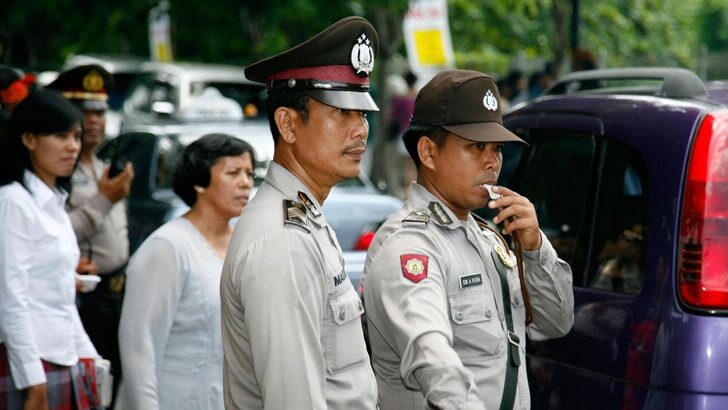
- Do not use your left hand to pass objects: In Balinese culture, the left hand is considered "unclean". Always use your right hand or both hands to pass objects or when greeting.
- Do not enter temples during menstruation: Women are forbidden to visit temples during menstruation as it is considered a desecration of the sacred place.
- Do not remove your shoes before entering the house: When entering someone's home or temple, be sure to remove your shoes. It is a sign of respect and cleanliness.
- Don't violate personal space: Balinese value personal space and do not like to be approached too closely. Respect this and keep your distance when communicating.
- Don't take pictures of people without permission: Always ask permission before taking a picture of a local person. This is a show of respect for their privacy.
Respecting local customs and etiquette will help you avoid unpleasant situations and make your stay in Bali more comfortable and enjoyable.
Cultural places
Bali is rich in cultural attractionsIt is a must-visit to get into the spirit of the island and its unique culture.
- Uluwatu Temple - one of the most famous temples in Bali, located on top of a cliff with stunning views of the ocean. Traditional Balinese kechak dances take place here daily, attracting many tourists.
- Tana Lot Temple - Another must-see place to visit. This temple stands on a cliff by the seashore and is especially beautiful at sunset. Tana Lot is one of the seven sea temples that, according to legend, protect the island from evil spirits.
- Ubud - The cultural center of the island, where you can enjoy traditional dance, arts and crafts. It is home to the famous Monkey Forest, as well as many art galleries and workshops.
- Besakih Temple - "Mother of all temples" in Bali, located on the slopes of Mount Agung. It is the largest and most important temple complex on the island, consisting of 23 separate temples. A visit to Besakih will allow you to see the unique architecture and religious ceremonies.
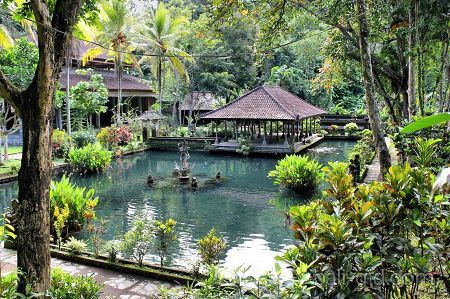

- Tirtha Empul - A sacred water temple known for its springs of healing water. Locals and tourists come here for purification and meditation. The temple is surrounded by picturesque gardens and ponds, making it an ideal place for a relaxing vacation.
- Goa Gajah (Elephant Cave) is an archaeological site dating back to the 9th century. The cave is decorated with carvings and statues, and inside is a shrine dedicated to Hindu gods. This place is ideal for those interested in history and archaeology.
- Taman Ayun - A royal temple complex built in the 17th century. It is surrounded by beautiful gardens and ponds, making it an ideal place for walks and photographs.
- Oolong Danu Bratan Temple - A picturesque water temple located on the shores of Lake Bratan. This temple is dedicated to the goddess of water and is one of the most photographed places in Bali.
- Kechak and Fire Dance at Uluwatu - A unique performance that takes place against the backdrop of sunset at Uluwatu Temple. The dance tells a story from the Ramayana and is accompanied by choral singing and fire effects.
Visiting these cultural sites will help you better understand and appreciate Bali's rich and diverse culture.
Pros and cons of living in Bali
Positive
- Nature and ecologyBali is famous for its picturesque scenery, from green rice terraces to white beaches and blue lagoons. The ecology of the island is relatively good, especially in areas away from tourist areas.
- Availability of food and entertainment: Bali offers a wide range of products, both local and imported. Markets and supermarkets offer fresh fruits, vegetables and seafood at affordable prices. Entertainment on the island is also varied, from surfing and diving to yoga and meditation.
- Unique culture and festivals: Bali's culture is unique and rich in traditions and festivals. The locals actively celebrate various religious and cultural events such as Nyepi, the Day of Silence, when the entire island is immersed in silence and tranquility.
- Housing options: Bali offers accommodation to suit all tastes and budgets. From luxury villas with swimming pools to budget guesthouses and hostels. Rental prices are relatively low, especially if you are planning an extended stay.
- Accessibility of the Russian-speaking community: The Russian-speaking community in Bali is active and friendly. Here you will always find support and help from compatriots, which makes adaptation to a new place easier and more comfortable.
- Low prices for transportation rental and fuel: Renting a scooter or car in Bali is much cheaper than in most European countries. Fuel is also inexpensive, making getting around the island affordable and convenient.
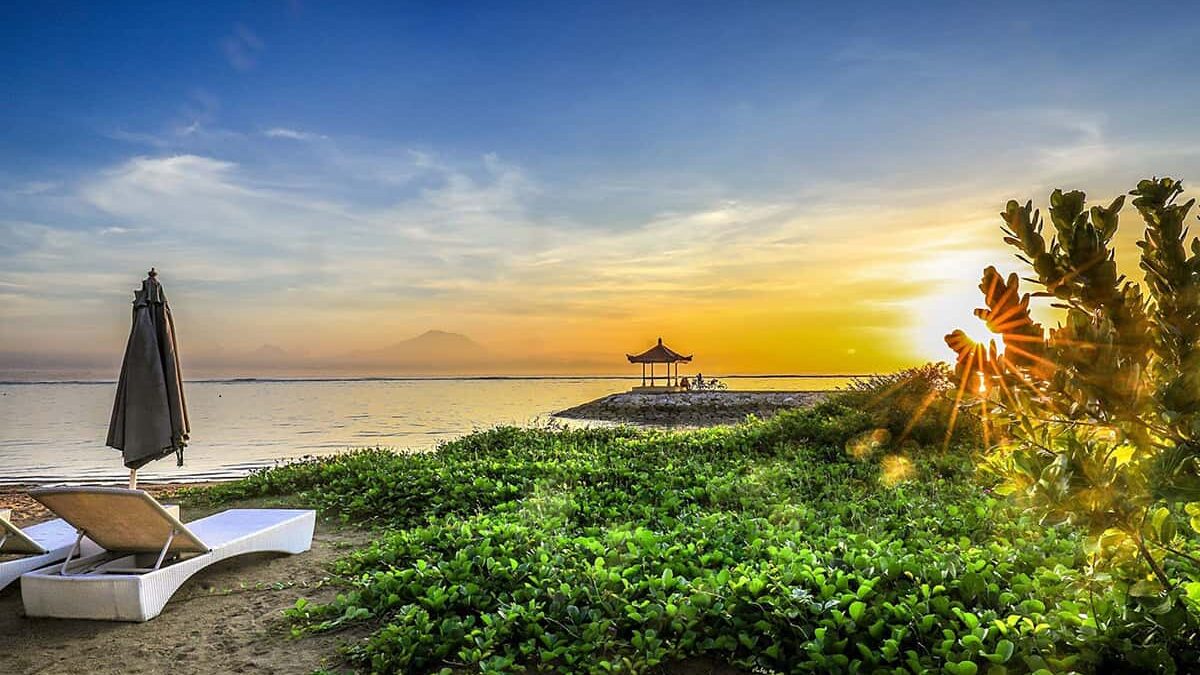
Minuses
- Poverty and crime: Despite its popularity among tourists, Bali faces problems of poverty and crime. Some areas have higher crime rates, so it pays to be cautious and avoid disadvantaged areas.
- Corruption among traffic police: Corruption on the roads is one of the problems many expats and tourists face. Traffic police can demand bribes for minor infractions, so it is always a good idea to carry a small amount of money with you in case of such situations.
- Environmental and infrastructure problems: Although the nature in Bali is beautiful, environmental and infrastructure problems do exist. In some areas, you can find garbage on the streets and beaches, as well as a lack of quality roads and transportation interchanges.
- Slow internet: Internet in Bali is not always stable and fast, which can be a problem for those who work remotely. The situation is better in major cities, but in remote areas, internet speeds can leave much to be desired.
- Traffic jams and dirty beaches: Traffic congestion is another problem faced by residents and tourists in Bali. During peak hours, traffic on the roads can be difficult. In addition, some beaches can be polluted with garbage, especially after storms and heavy rains.
- Fraud and pseudo-specialists: In Bali, it is possible to encounter scams and pseudo-specialists in various areas, be it accommodation rentals, tour guides or medical care. It is important to be careful and check reviews before using services.
Living in Bali has its pros and cons, but for many people the advantages outweigh the disadvantages. If you dream of living in a tropical paradise with a rich culture and friendly community, Bali may be the perfect place for you. It is important to be prepared for possible challenges and research all aspects of island life beforehand to make your move or vacation as comfortable and safe as possible.
The main perks of living in Bali include a warm climate all year round, affordable accommodation and food prices, rich culture and nature, and friendly locals.
The main disadvantages of living in Bali can include traffic and congestion problems, the rainy season, occasional beach pollution and possible infrastructure problems.
Bali has a tropical climate with two main seasons: dry (April-October) and wet (November-March). The temperature stays around 27-32 degrees Celsius all year round.
Opportunities are available in Bali for jobs in tourism, hospitality, as well as remote work and freelancing. Popular destinations for digital nomads include Changu and Ubud.
Bali is considered a relatively safe place to live. However, it is important to observe standard precautions such as using safes and avoiding isolated areas at night.
Medical services in Bali range from local clinics to modern international hospitals. High-quality medical services are available in major tourist areas.
The main modes of transportation in Bali include motorcycles, scooters, cabs and rental cars. Public transportation is underdeveloped and traffic congestion is often a problem, especially in tourist areas.
What are the main perks of living in Bali?
The main perks of living in Bali include a warm climate all year round, affordable accommodation and food prices, rich culture and nature, and friendly locals.
What are the main disadvantages of living in Bali?
The main disadvantages of living in Bali can include traffic and congestion problems, the rainy season, occasional beach pollution and possible infrastructure problems.
What are the characteristics of the climate in Bali?
Bali has a tropical climate with two main seasons: dry (April-October) and wet (November-March). The temperature stays around 27-32 degrees Celsius all year round.
What work opportunities are available in Bali?
Opportunities are available in Bali for jobs in tourism, hospitality, as well as remote work and freelancing. Popular destinations for digital nomads include Changu and Ubud.
How safe is it to live in Bali?
Bali is considered a relatively safe place to live. However, it is important to observe standard precautions such as using safes and avoiding isolated areas at night.
What is the quality of medical services in Bali?
Medical services in Bali range from local clinics to modern international hospitals. High-quality medical services are available in major tourist areas.
How is the transportation situation in Bali?
The main modes of transportation in Bali include motorcycles, scooters, cabs and rental cars. Public transportation is underdeveloped and traffic congestion is often a problem, especially in tourist areas.








